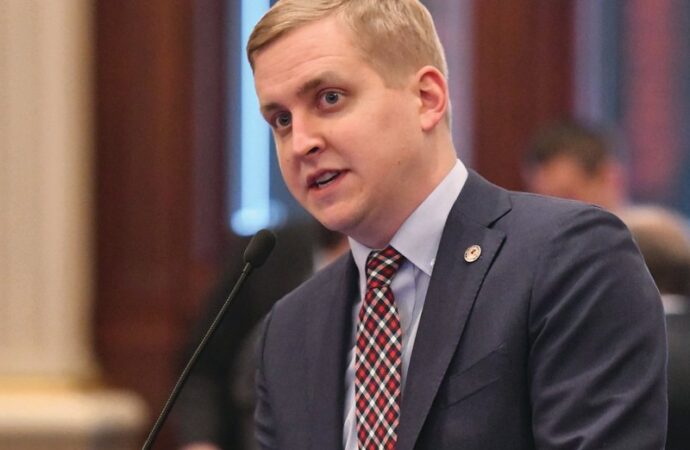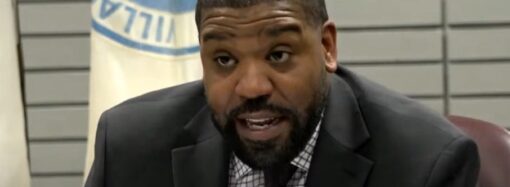Springfield lawmakers have a new speaker, a clean legislative slate and lots of unfinished business. Near the top of the list: policing themselves. On the table are proposed ethics reforms aimed at curbing practices that have made Illinois a byword for political corruption and Springfield a target-rich environment for federal prosecutors. A widening dragnet snared
Springfield lawmakers have a new speaker, a clean legislative slate and lots of unfinished business. Near the top of the list: policing themselves.
On the table are proposed ethics reforms aimed at curbing practices that have made Illinois a byword for political corruption and Springfield a target-rich environment for federal prosecutors. A widening dragnet snared Sen. Tom Cullerton, former Rep. Luis Arroyo and former Sens. Martin Sandoval and Terry Link, whose cases are still winding through courts. Sandoval and Link have both pleaded guilty. Cullerton and Arroyo pleaded not guilty.
Even Michael Madigan, the dominant force in state politics for four decades, was forced to step down as House speaker as associates faced federal charges. He hasn’t been charged with wrongdoing.
Good-government advocates say the crackdown has awakened lawmakers to the need for change. But the chances of real reform that puts a stop to the methods—many of them perfectly legal—by which politicians enrich themselves depends on how far leaders like new Speaker Chris Welch are willing to go.
Reformers hope to “create a culture of accountability instead of a culture of impunity,” says Alisa Kaplan, executive director of good-government group Reform for Illinois. “Ideally, you get to these problems before they escalate to illegal behavior, but you also change the expectation of what should be acceptable behavior, even if it’s not illegal.”
Key reform proposals include: banning legislators from lobbying other governments (Arroyo lobbied Chicago for gaming interests while voting on the issue in Springfield); stopping legislators, and potentially their staff, from becoming lobbyists immediately after leaving government; expanding lobbying rules to cover attorneys and consultants; exposing conflicts of interest by making lawmakers fully disclose outside income; and, perhaps most important, giving the legislative inspector general more independence.
Other states have “revolving door” rules requiring legislators to wait anywhere from six months to six years before lobbying former colleagues. The longer the wait, the less risk of lawmakers “auditioning” for lobbying gigs by shepherding legislation through to benefit potential future clients.
Lou Lang, formerly second in command in the House Democratic Caucus, stepped down in 2019 after three decades in Springfield to work almost immediately for a Springfield lobbying firm whose clients include Exelon, the Health Care Council of Illinois and the University of Illinois. Pam Althoff resigned from the state Senate and soon registered as a Springfield lobbyist whose client list included Enterprise. While in the General Assembly, she had sponsored a bill to regulate ride-hailing companies, ultimately benefiting rental companies like Enterprise.
Althoff didn’t respond to requests for comment, but in an email, Lang says a lawmaker’s fiduciary responsibility to the public interest lasts only as long as their term in office. While revolving-door provisions “are popular ethics reforms, and may help at the margins,” he says they “act mostly as window dressing” and that “integrity can’t be legislated.” He adds that a legislator’s experience is a long-term asset that extends well beyond six months or a year.
The amount of power given to the legislative inspector general to independently launch probes could also vary widely. Currently, legislators sign off on both the start of investigations and on public disclosure of findings. The state’s former acting legislative inspector general, Julie Porter, testified that she completed dozens of investigations, but when she “did find wrongdoing and sought to publish it, state legislators charged with serving on the Legislative Ethics Commission blocked me.”
A special ethics committee appointed early last year shut down without producing a report when COVID-19 hit. An effort to pass an ethics bill during the recent lame duck session fizzled, to the relief of good-government groups that didn’t think it went far enough or was properly, publicly vetted.
Welch and Senate President Don Harmon say they’re committed to ethics reform. Welch has created a new ethics and elections committee and signaled support for term limits for legislative leaders, a move aimed at preventing any single lawmaker from amassing too much power.
Still, some Republicans have their doubts, given Welch’s handling of the Special Investigative Committee looking into Madigan and the ComEd scandal.
“The committee met three times in 100 days and heard from one witness,” says Rep. Tom Demmer, R-Dixon, a member of that committee. “That’s not a thorough investigation. At the same time, now in his role as speaker, (Welch) has indicated that he wants to reconsider the House rules, turn the page, and establish kind of a new day. I take him at his word.”
Welch stepped back from his role as partner at law firm Ancel Glink, where he represented municipalities, but will continue to serve in an “of counsel” role, which a spokeswoman says means “reduced managerial, operational and consultative responsibilities compared to partner-level leadership.” His wife remains a partner at the firm.
Madigan was a partner at a property tax law firm throughout his term, as was former Senate President John Cullerton. Republican Rep. Jim Durkin also switched to “of counsel” at his firm when he assumed House leadership. Harmon is the exception: He resigned from his law firm when he became a legislative leader.
All point to another sticky issue lawmakers agree needs to be addressed but haven’t found a fix for: economic interest statements and recusals. There are no proposals to crack down on outside gigs for legislators. Springfield lawmakers are part-timers with base salaries under $70,000, so most hold other jobs.
Rep. Kelly Burke, tapped by Welch to lead the new ethics committee, is also an Evergreen Park trustee. “Our constitution and the way our Legislature is set up, it envisions a citizen Legislature,” Burke says.
Current disclosure statements offer very little insight. Welch, for example, disclosed his legal work at three firms on his 2020 form, but was not required to list his clients or compensation. Similarly, Madigan did not have to disclose lucrative property tax arrangements. That makes it difficult for the public to understand whether lawmakers have a conflict and how big it might be. Plus, under the current code, recusal is optional if a conflict exists on a bill.
“Some of this is gonna hurt,” Kaplan says. “But unfortunately, I think what we’ve seen is there’s no way around that. If the General Assembly is serious about changing this culture and restoring trust with the people of Illinois, some of these deep changes are gonna be necessary.”



























Leave a Comment
Your email address will not be published. Required fields are marked with *